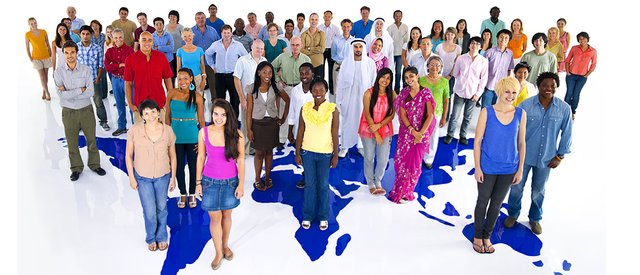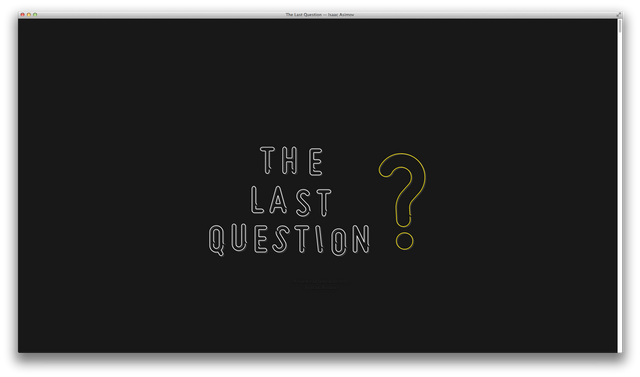
The other day a fellow blockchain enthusiast and friend said something that peeked my curiosity. The line was “I hate diversity and inclusion because it means nothing to AI and automation…” This intriguing comment belongs to Samson Williams (mind you we were on a panel on diversity and inclusion, lol). That is just one of the many outlandish things he has said that makes sense once he explains it. I didn’t follow up with him on it at the time. But that comment kept playing over and over in my head days later. It caused me to reexamine the whole idea of the diversity and inclusion movement. Especially, because I heard it brought up more than once about cryptos being an all-boys club aka “crypto bros”.
To be clear, I’m not arguing against diversity and inclusion. But I am questioning why it is so deep-rooted to western culture, American in particular (mainly in the last decade or two). I would like to note that no one I know uses the phrase “crypto bros” or says things like females shouldn’t be in the Space. I actually never heard it used until I was at a women’s panel on diversity. Which I found kind of weird because I’ve been in the Space since 2012. I’m not going to run down the rabbit hole on this. But I do wonder if that is just a Silicon Valley thing. I’ve heard there is a difference in the IT cultures of east and west.

Ok, here it goes, me trying to elucidate (bet you didn’t see that word coming, lol) what my issue is with how this Diversity & Inclusion Movement (DIM is what I’m calling it from now on) works stateside. In the US when a company is known to be diverse, it means they met some magic number that indicates they have X amount of female employees. The other half is checking the block for having X amount of people of color as employees for said company. The kicker is having women of color, that makes your diversity numbers really look good. Now let’s bring that to the Crypto Space; remember this is an open community centered around using a permissionless technology. So, no one can tell you how to use it. More importantly, NO ONE has the authority or right to tell you that cryptocurrencies or blockchain technology is not for you. Just about all the females I know who are active in various aspects of the Space never waited for someone to tell them they could start working in it. They saw an issue, had an idea, and went forward with implementing it. They had to learn from scratch like all the guys I know.
I know a bunch of females who are in the Space as traders, HODLers, programmers, and other career fields related to cryptos and blockchain technology like McKenzie M Slaughter, Danielle Dickerson, and Karima. I will admit I don’t personally know any female miners. That’s not to say they aren’t out there. I just haven’t met them yet. (Note to self, I need to network with more miners). Also, I’m not saying the numbers are equal when it comes to males and females in the IT world or in the Crypto Space. But when you hear some people talk about the crypto space you would think it was a sausage fest and that’s all it will ever be.

One of the first people I watched when getting into the Cryptos Space was Amanda B Johnson. In my book, she is on par with Andreas Antonopoulos because of her ability to break down the technical parts of cryptos. More importantly, her videos covered the practical and relevant issues to newbies and those more matured in the Space.
Now jumping to the concept of inclusion, which is about including all, right? I feel that in the US the concept of permissionlessness is being downplayed in the popular narrative of the Space. It seems like in the latter part of 2017 things started being about who had the money or had the smarts? This doesn’t mean there were/are no barriers to entry. I just think that those barriers were being promoted more than the solutions to overcome them, especially here in the states. As someone who watched hours and hours of YT videos. You can’t tell me the information to learn the basics to advance stuff was not out there. So instead of giving people direction to find the answers they needed. There was more discouragement i.e. telling people how technical it was and why it was so hard that none techie folks would struggle with it (I’m not saying everyone did it). I mean hell, we all started somewhere. And it’s way easier to do stuff today than it was back in 2013 or 2010. Looking back now I can see how that was a disservice to the general public that only certain people could understand cryptos and blockchain technology and use it. In turn, we set up mental barriers for some people, smh.

Let’s look outside of the US and see how inclusion is working in the bigger community. David Hays opened up a school in Columbia to help people coming from Venezuela learn about cryptocurrencies. Young, old, boy or girl, he teaches all. He literally uprooted himself from California and went to South America to help people in need. Danielle Dickerson worked on a crypto project that took her all the way to Afghanistan to help local women overcome economic oppression. Back in the states were still debating why colleges/universities aren’t starting undergrad courses or certification classes. For those who call on Berkeley or MIT. Those are not undergrad matriculated degrees. Nor are they certification courses, last I checked. I’ve also heard from people in the education community that money to support programs is part of the issue. I find that ironic because there are blockchain platforms willing to give away money for research. Not to mention the federal government is doing the same thing in funding projects. I would like to say hats off to Howard University for not waiting to see what the other universities or HBCUs did regarding blockchain technology. I don’t know all the details, but they have the first mover advantage by allowing freshman Gnarld Something to instruct free classes on how to create smart contracts on the Ethereum blockchain.
Inclusion into the Space is seemingly starting to come with a price tag. Or maybe, I’m just noticing it now. I don’t know… Today education is more about the business than educating. But I digress.
My second issue is that some people argue the Space doesn’t have gender diversity or better to say not enough. What does that mean to the females who are already here, like Porsha Something and Taylor Hanna? Do they not count? Don’t you think they are trying every day to gain the interest of more females in the Space? First, leading by example and second by speaking on panels, doing interviews, hosting social media channels, writing blogs, etc. Another question, what is the perfect number for diversity when it comes to gender in an open community like the Crypto Space? Which is a global community btw.

The other component of diversity is having people of color, which really means none-white. So here is a question, what does “racial diversity” mean when you’re not in America or a European country? What does diversity look like in Nigeria, Argentina, or South Korea? All these countries have growing crypto communities. I have a friend who is working on opening up a crypto exchange in Africa (and yes, they’re actually from Ghana). When I say that to people they are so shocked. People in the west keep sleeping on African countries because generally speaking, we are taught to be ignorant of what is actually happening outside of the US. Last year I was in Soul South Korea and met up with people in the crypto space community. It was a real eye-opener to learn how much attention they pay to western personalities when it comes to cryptos. They basically don’t.
Fintech startups (ICOs), traditional institutions, and regulators are talking about ways to apply the technology and are actively working on technical and legal solutions for integration. But stateside we have a funny (not ha-ha funny) double-sided conversation going on, that I don’t hear coming out of other countries. 1- is an anti-inclusion stance coming from the older financial industry colluding with regulators to restrict people’s access to cryptos and blockchain based on their economic status (accredited investors, that’s a whole nother article). 2- is the argument that there are no/not enough females/ POC in the space and it’s on the education and business world’s shoulders to fix it. Why is it on them? Why are we “asking” for permission to include anyone (male or female black or white) into an open source PERMISSIONLESS community based around DECENTRALIZATION? Why are we so bent on centralizing things? How did we start off in the US with Satoshi’s philosophy and come to what is going on now (How Sway, how?)? I get there will be growing pains and that you can’t control how the community grows. But as I’ve said before there are things happening in the Space that sadden me, inspire me, and remind me I’m no gate guard.
On the other side of the coin, we have an abundance of nonprofits foundations and diversity groups stateside all looking to promote the inclusion of women and POC. For all the money being moved around, photos of people smiling, and blah blah of who got to check the box. Why are we being told there is no diversity in the Space. How fast is diversity supposed to happen? Like is there a daily or weekly requirement?

This brings me to the question of why are we so obsessed with diversity and inclusion but struggle at attaining it in comparison to other countries? For example, India puts out more engineers in 1 equivalent college semester than what we put out in 1 whole year. You can argue the population angle but that only means they are putting out more female engineers than we do male engineers. The military is still having trial runs about having females in combat MOSs. Yet many other countries have had females holding the line for decades. We talk about leading the way.
America gets a black 44 and thinks it’s high speed, low drag, and the primary authority on diversity and inclusion. The most annoying thing to me about the “yes we can folks…” was them not realizing we were just playing catch up with the rest of the world in having DIM in who the president was.
Is the crypto space going to be another area where we’re playing catchup again? Is DIM more about the PR than actual diversity and inclusion? Just something I’m starting to wonder when I see how things are playing out in the US.
To be clear, I’m not arguing against DIM. I'm not saying we have the worst system or even the best. I’m just asking, is the American version, the one that everyone needs to follow outside of the country?
To the question in your title, my Magic 8-Ball says:
Hi! I'm a bot, and this answer was posted automatically. Check this post out for more information.
Downvoting a post can decrease pending rewards and make it less visible. Common reasons:
Submit
Good good luck
Posted using Partiko Android
Downvoting a post can decrease pending rewards and make it less visible. Common reasons:
Submit